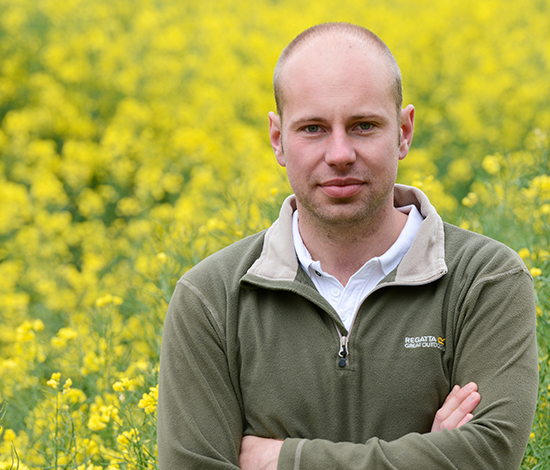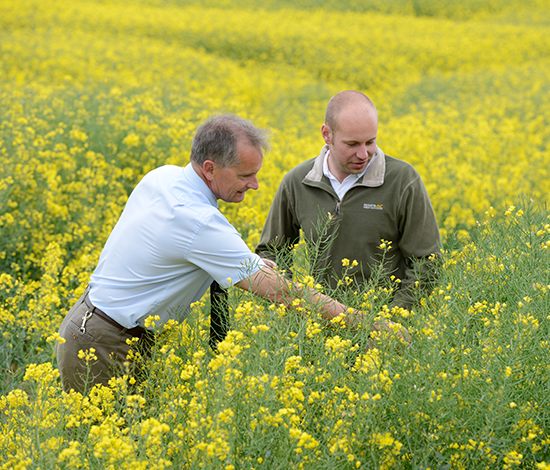Chris manages just over 600 hectares of combinable crops at Little Staughton Farms in Bedfordshire, including oilseed rape, wheat, spring barley and beans. He has a positive attitude to the changing nature of agriculture, “you have to adapt the way you work,” he says simply. “The can is not the answer any more, it can be part of the process, but you have to use cultural controls too; we’ve used lots of different cultivations, rotations and later drilling dates. It takes effort and commitment from everyone on the farm to get it right. It has helped dramatically, I can see improvement and we’re on the right track, but there’s still a way to go before the whole farm is at an acceptable level.”
It is not just a change of technique that is required to manage challenges such as black-grass, but also of mindset. “Whereas we used to plan our budgets over a year, now we have to do it over two or three years as you have to bear in mind the black- grass implications in following seasons,” he explains. “If you put all your effort into growing the best possible crop in year one, you are going to increase your black-grass population dramatically, creating a knock on effect in years two and three, so you have to take a much longer term view.”


He is supported in his work by agronomist Andrew Havergal. “Andrew has a wealth of knowledge. As my career has progressed and moved into farm management, I’ve been more involved in the agronomy and he’s definitely up there as one as one of the best agronomists that I’ve worked with. He’s got a very good knowledge and is very informative. He’s a big help for me when it come to making decisions on the farm.”
Andrew knows the farm extremely well, and Chris appreciates that Andrew has worked with him to understand exactly what he wants to achieve. “He is aware that I want to get the most out of the crops in the ground,” states Chris, “but then in a year like this, when profit margins are extremely tight, it can make for tough decisions. You want your crops to achieve their full potential, but equally, you can’t spend money without thinking because you’re not going to make a lot of profit from it. It helps to work with someone who understands those decisions.”









